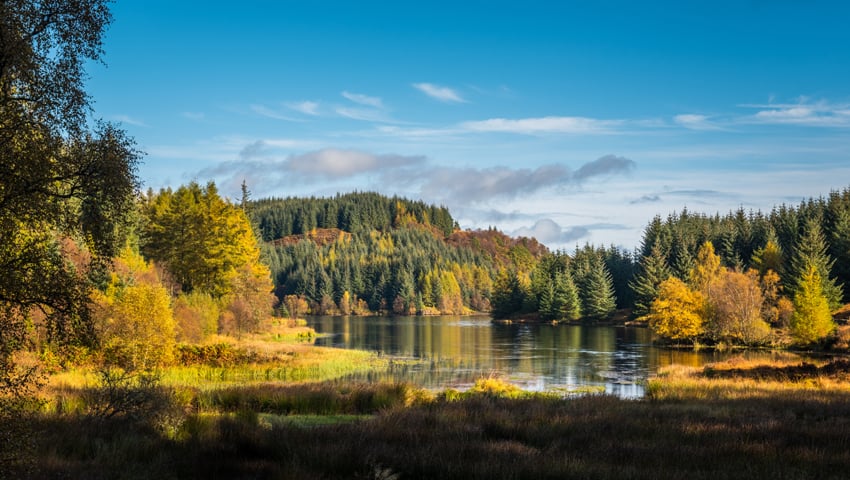The Royal Society of Edinburgh (RSE) has published a report on the environmental and social impacts of public subsidies for the forestry sector in Scotland.
The report makes a series of recommendations for how public financial support for tree planting in Scotland can be reorganised to better serve Scotland’s people, environment, forestry industry, and public purse.
In its recommendations, the report calls for Scottish Government to “discontinue subsidies for coniferous commercial tree planting.” It says, “In discontinuing these subsidies, Scottish Government should redirect the money that is saved towards tree planting that is designed to provide long term carbon sequestration, biodiversity and public benefits.”
Scottish Forestry responded saying that a combination of both conifer and broadleaf trees is required. This mixed forestry approach can best support the timber trade and forestry jobs (most new building in Scotland is now timber-framed), as well as carbon drawdown and nature regeneration.
Professor Ian Wall FRSE, who chaired the RSE inquiry and compiled the report, said, “The health of the population, and the health of the planet, is reliant on a robust, biologically diverse environment. The role of trees – the right trees in the right place – in improving biodiversity, carbon-capture, and well-being in both urban and rural environments cannot be overstated.
“That is why the main recommendation of the report, is that subsidies for commercial forestry, which are poorer at delivering these needs should be redirected to long term, mixed native tree planting and other benefits.
“The report concludes that commercial conifer forestry, which benefits from 100% tax relief, no longer needs public subsidies that distort the market, reflected in the rapid increase in the price of land for tree planting, and that the money should be redirected to maximise the common good.”
However, Scottish Forestry has pushed back against the RSE findings. A spokesperson said, “As you could imagine, we’re disappointed that the Royal Society of Edinburgh didn’t engage with us on the production of this report, despite our offer. We could have fed in the most up to date advice, research and other information to help ensure this work is taken into account.
“While referring to recent analysis by Forest Research on the carbon benefits of different trees and woodland types, the report is not clear about the speed at which conifers remove CO2 from the atmosphere, or their longer term benefits through the use of wood products and further sequestration following replanting.”
Planting new coniferous woodlands is expected to sequester more than four times the amount that broadleaves do by 2050, although this starts to even out when broadleaves mature towards 2100.
With the help of public funding, Scotland’s forests and woodlands sequester around 7.6 million tonnes of CO2 each year – 14 per cent of Scotland’s gross emissions.
They said that previous independent studies had estimated that the forestry and timber processing sector supported around 20,000 jobs across Scotland and generated almost £800 million annually for the economy.
“Scotland”, the spokesperson said, “needs to continue growing a mixture of both productive species as well as native broadleaves if we are to tackle climate change and nature loss. Forestry grants are a vital means to stimulating woodland creation & we will continue to support funding for both conifer and broadleaf planting.”
Professor Pat Monaghan FRSE from the Royal Society of Edinburgh disagreed. He said, “Our scarce public funds must be used to maximise benefits for both the public and our environment. We now face the twin crises of climate change and biodiversity loss. We must ensure that our investments in tree planting are done in ways that reduce our carbon emissions without reducing our precious and fragile biodiversity.
“We urgently need a coherent strategy to manage the planting of trees in Scotland. The right trees, planted in the right way, in the right places will benefit our climate, our biodiversity and our economy. Getting this wrong will cause damage that we will deeply regret.
“The report raises concerns about the fact that Environmental Impact Assessments are rarely required in practice. If, the report says, the EIA process was to be bolstered, it would help the forest industry, environmental specialists and communities to prepare better planting schemes.
“The report also proposes that enterprise companies should assist, and invest in, the Scottish timber processing sector to produce higher added-value timber products, this would not only have obvious economic benefits, but also the long-term benefit of sustained carbon capture.”
